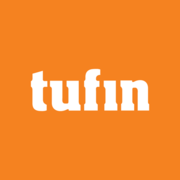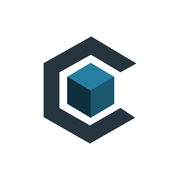
Best Container Security Software 2026
What are Container Security Tools?Because of their relative number of abstraction layers, containers pose a relatively large number of vulnerability issues. Container security (or Kubernetes security) tools scan containers for vulnerabilities and policy-violations, and provide remediation. Container security applications provide policy-based orchestration, starting with scanning and discovery for containers and images.The main goal of most container security tools is to scan container images ...
We’ve collected videos, features, and capabilities below. Take me there.
All Products
Learn More about Container Security Software
What are Container Security Tools?
Because of their relative number of abstraction layers, containers pose a relatively large number of vulnerability issues. Container security (or Kubernetes security) tools scan containers for vulnerabilities and policy-violations, and provide remediation. Container security applications provide policy-based orchestration, starting with scanning and discovery for containers and images.
The main goal of most container security tools is to scan container images for vulnerabilities and identify additional security needs for said images. This is particularly crucial for images that come from public sources, but all containers benefit from some external security. Some tools will also bundle vulnerability scanning with other application security testing and access control capabilities. They often focus on securing container development processes earlier in the software development lifecycle (SDLC). Some tools can also continue vulnerability scanning and runtime management into production environments as well. These broader tools will overlap more heavily with Runtime Application Self-Protection (RASP) software.
There are many open source point solutions for container security, in addition to paid offerings. Open source container security tools usually focus on scanning containers for common vulnerabilities and exposures. They utilize publicly available lists of known vulnerabilities to identify these risks in container images. Open source container security products can work as a baseline for security, especially if there are in-house resources for managing the tools more proactively. However, they are less likely to be sufficient on their own, and are best used when complemented with other security measures, such as application security testing tools.
Features of Container Security Tools
Container security software provide the following features:
Full container stack scanning
View metadata for container and images
Image vulnerability detection
Container application performance tracking
Centralized policy management
Container Security Tools Comparison
Consider these factors when comparing container security tools:
Paid vs. Open Source: There is a strong open source presence among container security tools. These DIY tools generally focus on vulnerability scanning, which can be sufficient if the business has the in-house resources to run it. However, paid offerings are likely to have more runtime features and a more aggressively maintained vulnerabilities library to scan for.
Integration: Some container security tools largely run outside of the container environment itself. However, others are designed to integrate directly into the container orchestration platform. More robust integrations will create numerous efficiencies, but may require more upfront implementation effort.
Development vs. Runtime Security: Container security tools will span the spectrum of focus between inserting security into development processes and securing runtime management in production environments. Consider whether the business should utilize one, or both, use cases and narrow the options down to the tools that best align with that set of needs.
Start a container security tools comparison here
Container Security Tools Pricing
Container Security solutions are typically priced per instance at an annual rate. The exact price of the software will depend on the features offered, but businesses can expect to pay at least $500 annually, with prices extending into the thousands for enterprise solutions.























